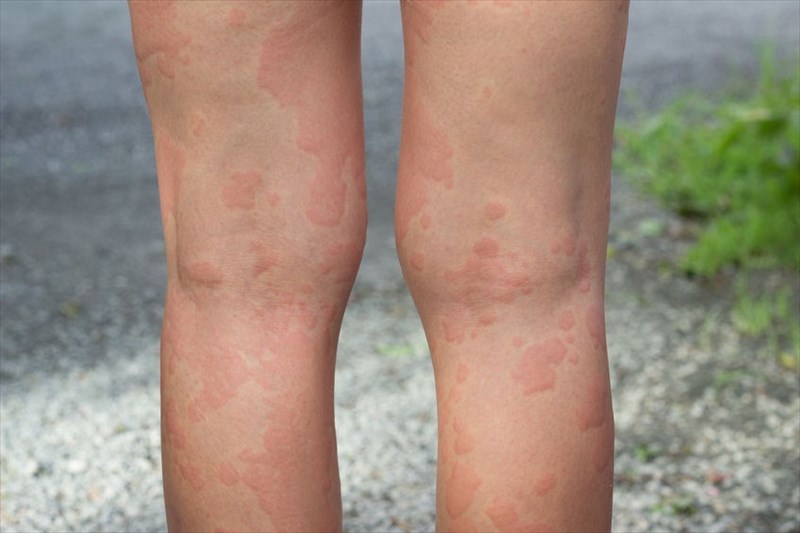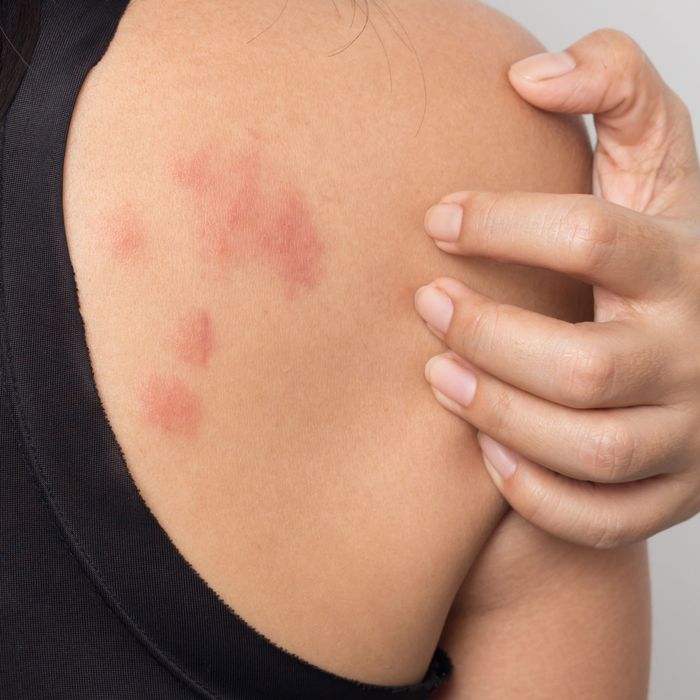
There are several different causes of hives. A viral illness, such as a cold or flu, can cause hives. If you suspect a viral illness, contact your doctor as soon as possible. However, most cases of hives are harmless and go away on their own after 3 to 4 days. If you’re concerned, you should consult with your pediatrician. The following information is for educational purposes only.
A viral illness may also cause hives. In such cases, a cold will usually precede a rash. They’ll appear between three and five days after the cold begins, and they’ll likely stay on for a few more days. When this happens, you’ll want to avoid the cause of your rash to prevent it from spreading. This way, you can minimize the likelihood of spreading the condition to others.
A food allergy can cause hives. In some cases, an allergic reaction can cause an increase in hives. In some cases, a reaction can be so severe that it requires immediate medical attention. A dermatologist can recommend skin tests and blood tests to determine the exact cause. You can also take an oral challenge test to identify your trigger. This involves eating a food that may be causing your hives and see if you get them.
In some cases, you may have hives caused by exposure to the sun. While it is rare, exposure to the sun can lead to hives. While there is no cure for solar urticaria, you can take steps to minimize the symptoms. Use high SPF sunscreen and wear clothing that protects you from the sun’s ultraviolet rays. If you are still prone to hives, limit your exposure to the sun during midday hours.
If you’re concerned about the cause of your hives, see your doctor for a diagnosis. If you’re unsure, you can try taking an ice bath to relieve itching. Taking a cold bath may also relieve pressure hives. For this, you should wear loose clothing and avoid cold water. If you’re going out in public, make sure you apply sunblock before heading out to play in the sun.

Having hives is uncomfortable and can be very frustrating. You may not even know what’s causing them. There are several ways to relieve itching and reduce the likelihood of developing a serious condition. Among the most common options, you can try a cool bath to relieve your discomfort. Taking an ice bath can be helpful in alleviating the itching and redness of hives. A cool bath can also help you to wash away any allergens from your body.
There are a number of things that can cause hives. The most common causes are bee stings, foods containing certain ingredients, and allergic reactions to those substances. Medications are available to help control the symptoms, but they can also cause hives to recur. While a medication can control the itching and redness, it is important to watch for any signs of an allergic reaction. The symptoms can last for a few days and then return.
Although hives are usually not contagious, they are a warning sign that a serious allergic reaction is happening. A rash accompanied by hives is not an emergency, but it can occur when a virus is raging. While most cases of hives are temporary, they can be very bothersome and can be irritated by the itch. It is also important to take proper measures to avoid catching the condition in the first place.
If the hives are severe, it is important to seek medical attention as soon as possible. There are a number of different causes for hives, but the main one is the allergic reaction itself. Typically, these symptoms last for about 24 hours and are completely harmless. But, if the symptoms are severe, you should consult a physician as soon as possible. If the rash is caused by a viral infection, the condition may be treated with a medication or a combination of medication.
The most common causes of hives are allergies and food. But, if your hives are widespread and affect your mouth or airways, it is important to seek medical attention. Treatment may include steroid medication and adrenaline. Generally, hives do not require hospitalization. In addition, if you develop a severe rash, you should consult with a doctor. If the hives are infected or persistent, call your doctor.